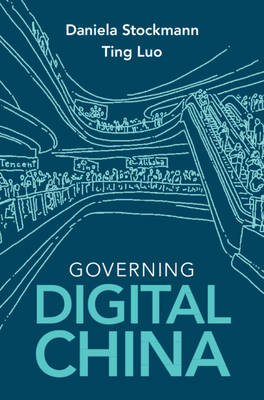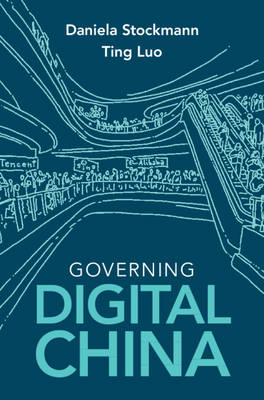
- Afhalen na 1 uur in een winkel met voorraad
- Gratis thuislevering in België vanaf € 30
- Ruim aanbod met 7 miljoen producten
- Afhalen na 1 uur in een winkel met voorraad
- Gratis thuislevering in België vanaf € 30
- Ruim aanbod met 7 miljoen producten
Zoeken
Omschrijving
China's approach to digital governance has gained global influence, often evoking Orwellian 'Big Brother' comparisons. Governing Digital China challenges this perception, arguing that China's approach is radically different in practice. This book explores the logic of popular corporatism, highlighting the bottom-up influences of China's largest platform firms and its citizens. Drawing on extensive fieldwork and nationally representative surveys, the authors track governance of social media and commercial social credit ratings during both the Hu Jintao and Xi Jinping eras. Their findings reveal how Chinese tech companies such as Tencent, Sina, Baidu, and Alibaba, have become consultants and insiders to the state, thus forming a state-company partnership. Meanwhile, citizens voluntarily produce data, incentivizing platform firms to cater to their needs and motivating resistance by platforms. Daniela Stockmann and Ting Luo unveil the intricate mechanisms linking the state, platform firms, and citizens in the digital governance of authoritarian states.
Specificaties
Betrokkenen
- Auteur(s):
- Uitgeverij:
Inhoud
- Aantal bladzijden:
- 294
- Taal:
- Engels
- Reeks:
Eigenschappen
- Productcode (EAN):
- 9781009360654
- Verschijningsdatum:
- 4/12/2025
- Uitvoering:
- Hardcover
- Formaat:
- Genaaid
- Afmetingen:
- 152 mm x 229 mm
- Gewicht:
- 562 g

Alleen bij Standaard Boekhandel
+ 331 punten op je klantenkaart van Standaard Boekhandel
Beoordelingen
We publiceren alleen reviews die voldoen aan de voorwaarden voor reviews. Bekijk onze voorwaarden voor reviews.








